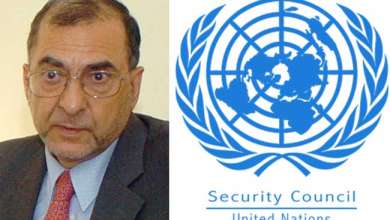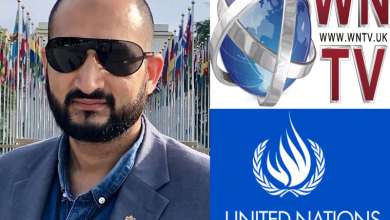Let the United Nations prove that it is not a country club for rich

Witten by: Dr. Imtiaz A. Khan
Professor at George Washington University Medical center
Washington, DC January 8, 2024
Unresolved issue of Indian occupied Kashmir has embroiled the region since last more than 76 years. The situation has deteriorated to the extent that there is recurring threat that if left unresolved it may catapult into a major warfare between two nuclear armed neighbors – India and Pakistan. The conflagration in all likelihood will engulf the regions beyond south Asia and it is believed that catastrophe may swallow half of the population of the world. In order to find a tangible solution to this protracted problem we have delve deep into the genesis of the issue and consider changing geopolitical situation that makes it more ominous.
On January 5, 1949, United Nations accepted the disputed nature of the state of Jammu and Kashmir between India and Pakistan. On this date the United Nations Commission for India and Pakistan (UNCIP) guaranteed the right of the Kashmiri people to determine their future by stating “The question of the accession of the State of Jammu and Kashmir to India or Pakistan will be decided through the democratic method of a free and impartial plebiscite.’
Thus, January 5, marks a high point in the struggle of the Kashmiri people for their inalienable right to self-determination. However, this resolution was never implemented, and the inhabitants of the occupied land continue to suffer at the hands of tyrannical Indian forces who are facilitated by draconian laws like ‘Terrorist and Disruptive Activities Act’ (TADA), ‘Unlawful Activities and Prevention Act’ (UAPA) and ‘Public Safety Act’ (PSA) that provide them impunity to kill, rape and massacre. It should be noted the area is controlled by over 900,000 Indian armed forces who are indulging in crimes against humanity and subjugating the population who desire nothing less than freedom from occupation.
The genuine leadership of Indian occupied Kashmir directly and indirectly have fervently appealed to the UN and other international bodies to pay heed to their pleas and impress upon India to put an end to this coercion and to fulfill their commitments. Unfortunately, all these supplications have fallen on deaf ears and till this date innocent Kashmiris are massacred, molested and tortured on a daily basis.
In 1990 freedom loving people of Kashmir were enthralled and enchanted by the statement of 42nd President of United States when Kuwait was occupied by Iraqi forces. President Bush said “Out of these troubled times, our objective – a new world order – can emerge: a new era, freer from the threat of terror, stronger in the pursuit of justice, and more secure in the quest for peace. An era in which the nations of the world, east and west, north, and south, can prosper and live in harmony. On similar lines the press release from UN described Iraq’s invasion and brutal occupation of Kuwait a flagrant violation of international law and the Charter of the United Nations. But over the years the hopes raised by these events have been replaced by despair and despondency. It may not be imprudent to imply that over the years dispensation of the justice and protection of human rights by the UN are linked to economic prowess of the aggresse and dependent on the financial interests of world powers. If the aggressor offers ample financial opportunities to major powers, human right violations and throttling of voices of freedom are conveniently ignored. This could be an overstatement, but non-resolution of protracted problem of Kashmir and Palestine has created this perception.
Here I would like to quote an eminent international humanitarian American lawyer, Dr. Karen Parker (Chairman, Humanitarian Lawyers Association), who said “while focusing on the United Nations’ definition of self-determination, the state of Jammu and Kashmir ‘obviously’ met the criteria: firstly that there should be an identifiable territory; secondly, that there should be a history of self-governance; thirdly, that the people should be distinct from those around them; fourthly that the people should have the capacity for self-governance; finally, the people ‘have to want it’, the people of Kashmir clearly did. ‘Never really since 1947 have the people of Kashmir given up the wish of self-determination.”
The onus lies on the UN to dispel the notion that this august body is not a country club for rich, razzing, and dazzling powers wherein ornate building fate of “lesser children of god” are decided by selected few. The time is opportune for the UN to get engaged with this issue, prevail upon India to implement the resolutions, and provide succor to people of Kashmir. Doing so will provide glimmer of hope not only to Kashmiris but to other oppressed people of the world, especially when the clouds of war are hovering across the continents and rumblings of major conflicts are clearly audible.
Dr. Khan can be reached at: imtiaz.k86@yahool.com or. imti56@gwu.edu





